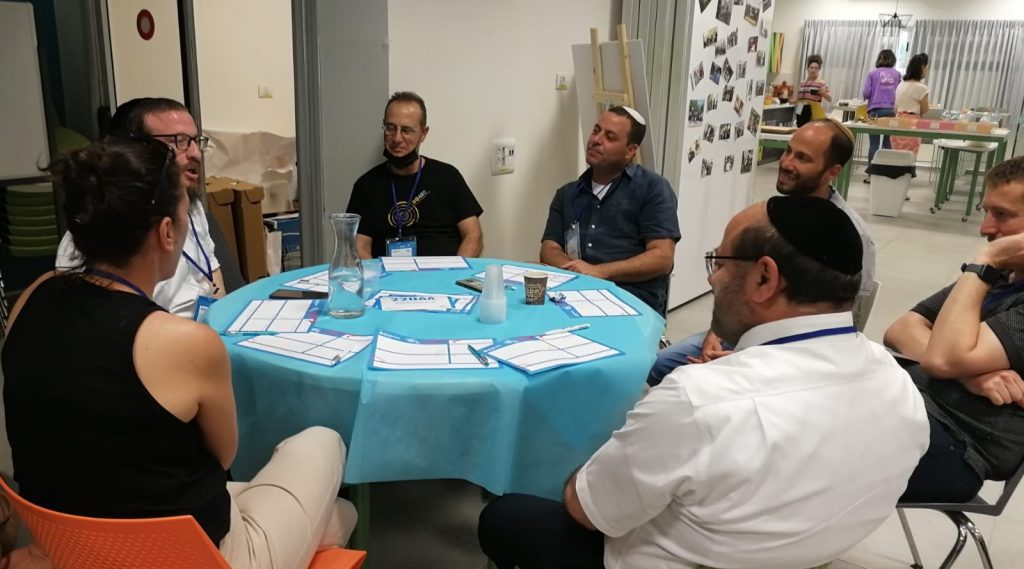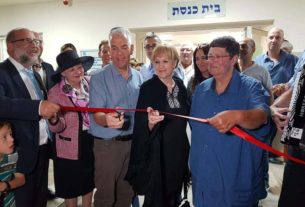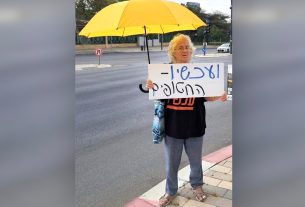Given the torrent of news developments in Israel since its brief war with Hamas in May — a new prime minister and government, an unexpected resurgence of COVID-19 — the 11-day conflict might be easily forgotten.
But two months on, many Israelis are suffering lingering trauma — both from the more than 4,000 rockets and mortar shells fired from Gaza and the paroxysm of internal violence that the conflict sparked between Arabs and Jews inside Israel.
In many cases, symptoms of trauma are manifesting many weeks after the end of hostilities.
There are children who refuse to leave the safe rooms in their homes, or to shower or sleep alone. Others have developed tics or have refused to go to school. Many adolescents find themselves angry or withdrawn. Adults, too, are struggling with symptoms of anxiety like insomnia, hypervigilance and avoidance.
“We were dealing with entirely new realities,” said Debra Slonim, director of international relations for the Israel Trauma Coalition. “This time was very different, and it was all coming on the heels of an extremely difficult year of COVID.”
Launched in 2002 by UJA-Federation of New York, the Israel Trauma Coalition collaborates with government agencies, nonprofit organizations, and academic and health institutions to provide psychosocial care to individuals and communities before, during and after traumatic events.
The organization runs Resilience Centers throughout Israel, and especially in communities in the area near Gaza. It also offers training in emergency preparedness to first responders, caregivers and educators so they can identify people in mental distress and offer appropriate help.
“The war hasn’t finished,” said Yonatan Shoshan, manager for the Resilience Centers in southern Israel, who has tracked the ongoing and manifold increase in requests and referrals for mental health support.
“As an example, in Ashkelon alone, 535 individuals turned to us for help in the five weeks after the operation ended, as opposed to 92 in the five weeks prior to when it started,” Shoshan said.
In response to the dramatic increase, the Trauma Coalition has recruited and trained new professional mental health care providers to offer treatment at the Resilience Centers or in people’s homes if necessary.
Dafna Shengras, director of the Ashkelon Resilience Center, said the unprecedented number of rockets shot toward Ashkelon raised the anxiety levels of many children beyond the ability to cope. Psychological and physical symptoms resulting from the stress have been more severe than in the past.
“Parents don’t recognize their children,” Shengras said.
Gitty Peles, a mother of five, runs a Chabad center in Ashkelon along with her rabbi husband and directs a day care center. She considers herself fortunate to have begun a series of 24 family therapy sessions offered free in January at her local Resilience Center.
“A rocket siren went off in September 2020 and one of my sons was in the shower and unable to get to our safe room within 40 seconds. He was hysterical for hours afterwards,” Peles said.
A school counselor recognized that he and other children in the family were suffering from anxiety and referred them to the Resilience Center.”
“Our family learned tools to cope, including breathing techniques,” Peles said. “The children have gained resiliency. We had a chance to test things out in May, and it was clear that we were in a much better place. Our children can handle the sirens and booms now.”
The frayed relationship between Israel’s disparate communities represents another major challenge for a country sharply divided between Arabs and Jews, Orthodox and secular, right and left.
Co.Lab, a program launched by UJA-Federation of New York in 2015 that it continues to run, is focused on building bridges. An annual cohort of 20 Co.Lab fellows with diverse ethnic and religious identities who are leaders in various fields learn in depth about each other’s communities. It’s an effort to deepen relationships and collaborate on initiatives to promote a better Israeli society.
“These are people who already have vision and are in positions of leadership,” said Rebecca Katz-White, planning director in the Jewish Life department at UJA-Federation of New York. “We are leveraging this to create a stronger Israeli future.”
Despite the relationships formed by Co.Lab participants, discussing the events surrounding the conflict in May has been fraught.

At Co.Lab, Israelis from diverse ethnic and religious backgrounds meet and talk to learn about each other’s communities and collaborate on programs to build a more cohesive society. (Courtesy of Co.Lab)
“It was complicated to go through this event together, but it also forced us to not to take extreme positions,” said Yael Bialer Rahamim, vice president of resource development, marketing and partnerships at Desert Star, a nonprofit organization focused on developing young Bedouin Arab leaders.
The current Co.Lab cohort was scheduled to come together for a week of meetings exactly when May’s hostilities began. The gatherings were rescheduled for a week after the war ended.
“The conversation was very challenging and complex,” said Co.Lab’s director, Dafna Dor. “But people listened to one another.”
Obviously a few conversations cannot repair the damage done by the days of civil unrest during the recent conflict. But the idea, Dor said, is that participants will take what they gain from Co.Lab and take it back to their families, communities and workplaces.
“We see it having a ripple effect,” she said.
Co.Lab fellow Orna Heilinger, a manager at the Israel Internet Association, said her experience with Arab cohort fellows helped her talk to fellow Jews about Israeli-Arab perspectives.
“I had quite a few opportunities to express the voice of the Arab society in conversations where it was not included, whether in private discussions or on social media,” Heilinger said.
Nizar Daaka, who is from Israel’s ethnic Druze minority and is an educational leadership lecturer at Kinneret Academic College, said Co.Lab “lets us bring our identities without censorship.”
Having reached the rank of lieutenant colonel in the Israel Defense Forces, Daaka is currently working on an initiative introducing coexistence education into the Israeli public school system, beginning with a pilot project in northern Israel.
The idea is to foster empathy and respect to those different from you.
“Even when the discussion is hard, we speak civilly to one another,” Daaka said. “I haven’t seen this happen in any other framework I have been in.”




